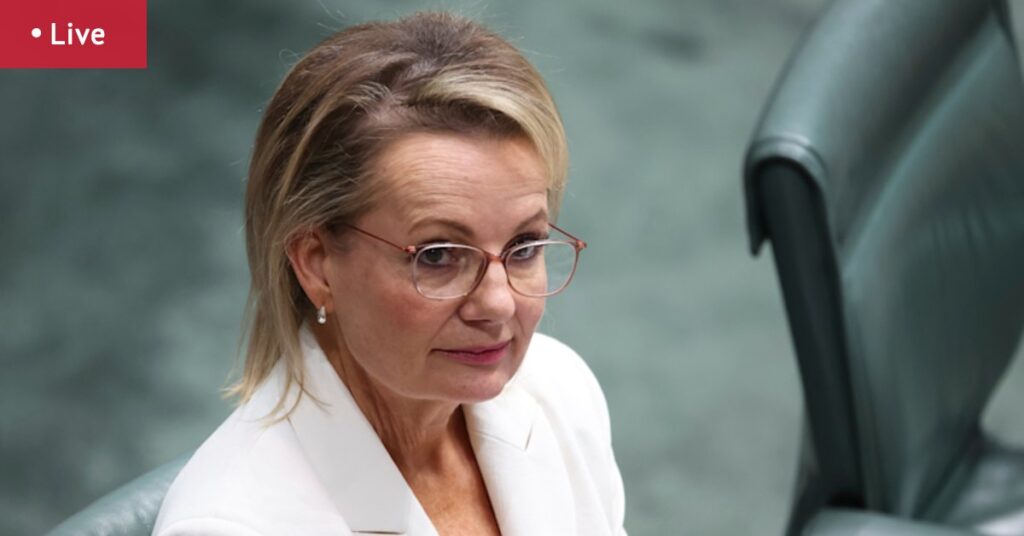
In a week marked by significant political and social developments, former U.S. President Donald Trump has threatened to sue the BBC, the Australian Liberal and National parties continue their heated debate over net zero emissions, and a tragic bombing in Delhi has left eight dead and many injured.
Trump’s Legal Threat Against BBC
Donald Trump has reportedly threatened legal action against the BBC, accusing the broadcaster of defamation. While details of the specific grievances remain unclear, Trump’s legal team is said to be preparing a case. This move comes amidst a series of legal battles the former president is engaged in, both in the United States and internationally.
The BBC has yet to issue a formal response to these threats. Legal experts suggest that such a lawsuit could face significant hurdles, especially given the strong protections for free speech and press in both the UK and the US.
Australia’s Net Zero Emissions Debate
Tim Wilson Advocates for Sovereign Targets
In Australia, the debate over net zero emissions targets continues to divide the Liberal and National parties. Opposition employment spokesman Tim Wilson has argued that Australia should set its own targets based on domestic needs rather than international standards. Speaking to Sky News, Wilson emphasized the importance of sovereignty in setting these goals.
“I am in the sovereign camp. I believe in targets we set for our national interest, not deferring to international institutions or globalist standards,” Wilson stated.
Wilson’s comments highlight a broader ideological rift within the Coalition, as the parties attempt to reconcile differing views on energy policy.
Governor-General Warns of Democratic Fragility
Meanwhile, Governor-General Sam Mostyn has raised concerns about the decline in Australians’ understanding of democratic institutions. Speaking at an event marking the 50th anniversary of the dismissal of the Whitlam government, Mostyn emphasized the need to protect the “fragility” of Australian democracy.
“We need to pay close attention to the particular fragility of our system today,” Mostyn warned.
Her comments come as Australia grapples with misinformation and a perceived erosion of trust in key institutions.
NSW Nationals and Liberals at Odds
The NSW Nationals have signaled their agreement “in principle” with the Federal Nationals’ plan for a cheaper and fairer energy strategy. However, the party insists that regional NSW should not bear the brunt of Labor’s renewables rollout. This stance has created tension with their Liberal counterparts, who are wary of abandoning net zero commitments.
“We will work with our Coalition partner to reach a clear, united position that puts affordability, reliability, and the environment at the centre of NSW energy policy,” stated NSW Nationals leader Dugald Saunders.
Delhi Bombing: A Tragic Attack
In international news, a devastating bombing in Delhi has resulted in the deaths of eight individuals, with numerous others injured. The attack, which occurred in a crowded market area, has sparked outrage and condemnation from leaders worldwide.
Authorities are investigating the incident, with early reports suggesting it may be linked to ongoing regional tensions. The Indian government has vowed to bring those responsible to justice, as security measures are heightened across the capital.
Implications and Forward-Looking Analysis
The developments of this week underscore the complex interplay of politics, security, and governance on the global stage. Trump’s legal threat against the BBC highlights ongoing tensions between media and political figures, while Australia’s internal debates reflect broader challenges in balancing environmental goals with economic and regional interests.
In Delhi, the tragic bombing serves as a stark reminder of the persistent threat of violence and the need for robust security measures. As investigations continue, the international community watches closely, hoping for stability and peace in the region.
As these stories unfold, the world remains attuned to the implications for international relations, domestic policy, and the ever-evolving landscape of global governance.







